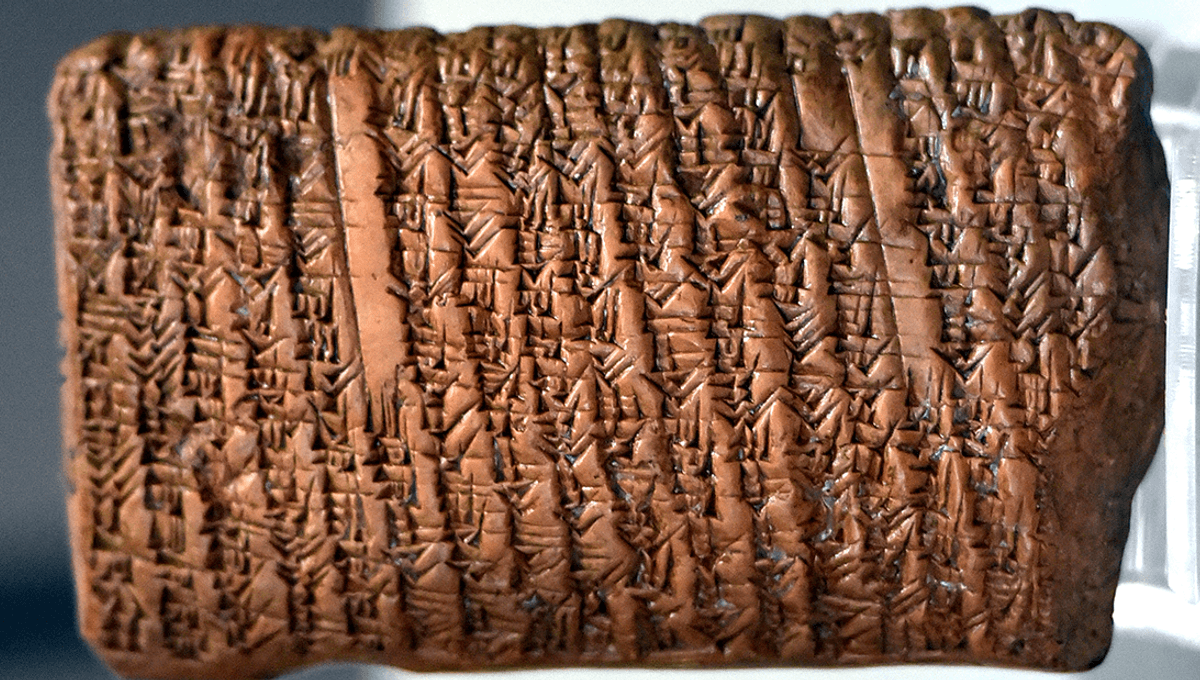Study math for long enough and you will likely have cursed Pythagoras’s name, or said “praise be to Pythagoras” if you’re a bit of a fan of triangles.
But while Pythagoras was an important historical figure in the development of mathematics, he did not figure out the equation most associated with him (a2 + b2 = c2). In fact, there is an ancient Babylonian tablet (by the catchy name of IM 67118) which uses the Pythagorean theorem to solve the length of a diagonal inside a rectangle. The tablet, likely used for teaching, dates from 1770 BCE – centuries before Pythagoras was born in around 570 BCE.



We have phylogenetic techniques to interpolate when certain genes might’ve appeared in evolutionary history. Not surprisingly, the ability to breakdown plastics is quite new.
Not only that, but the very few microorganisms that can degrade some plastics only express those enzymes under extreme pressure, when no other sources of carbon are available. Literally every sugar is a better alternative than plastic, as the process of degrading it is massively inefficient.
Making a usable polymer out of the absolute insane mixture that is crude oil is also way beyond what any human civilization could ever achieve without industrialization.
I get your point of “but we did amazing things in the past! look at the complexity of steel!” but artificial plastic polymers is in another league.
Also my point is not “we were so awesome”, it’s “why do we think every generation before us was a drooling caveman”
We do not. But there’s a massive jump in logic from the idea that we could handle bronze versus we could make plastic.
And once again, the biological portion of your statement makes no sense.